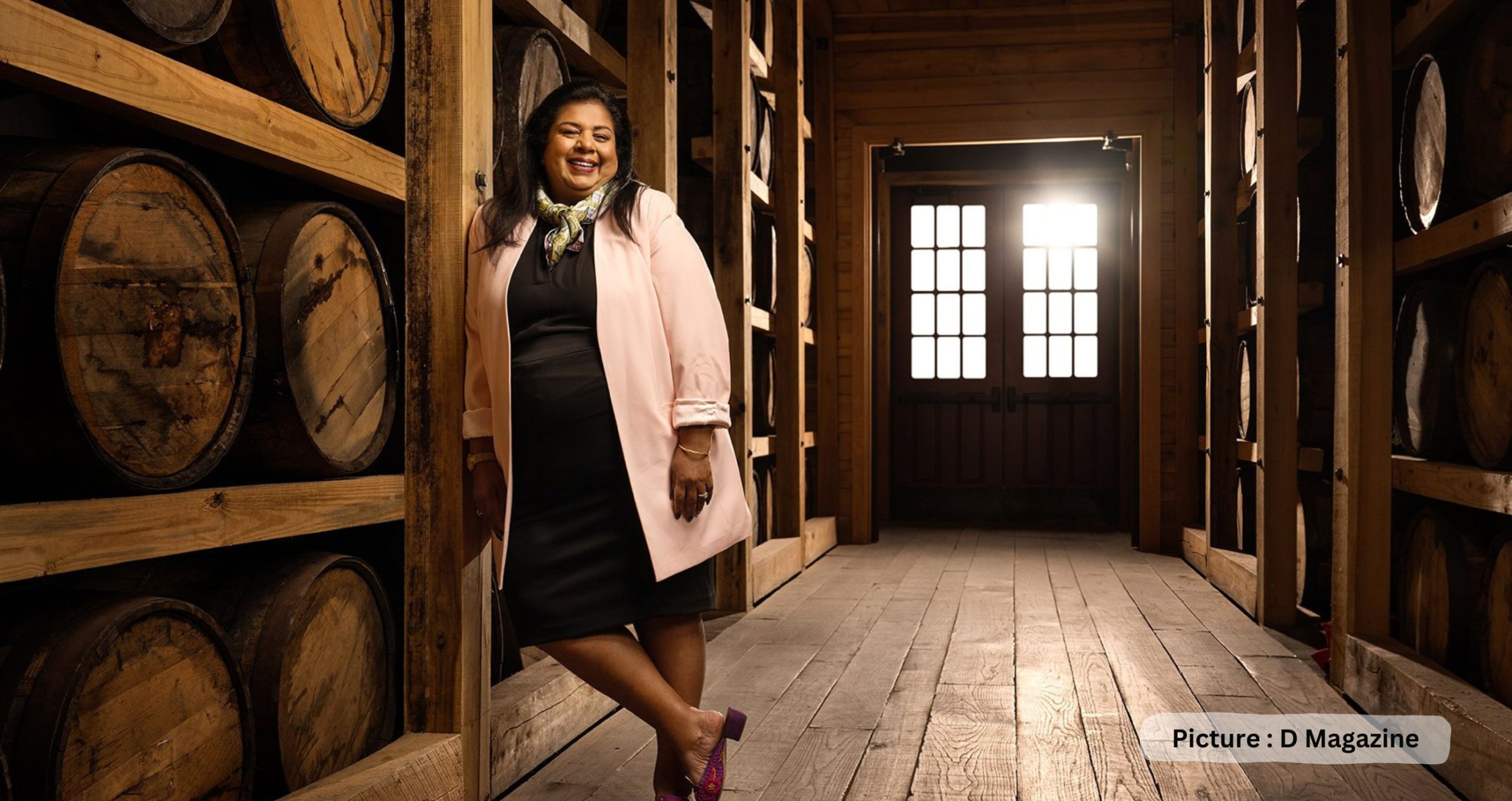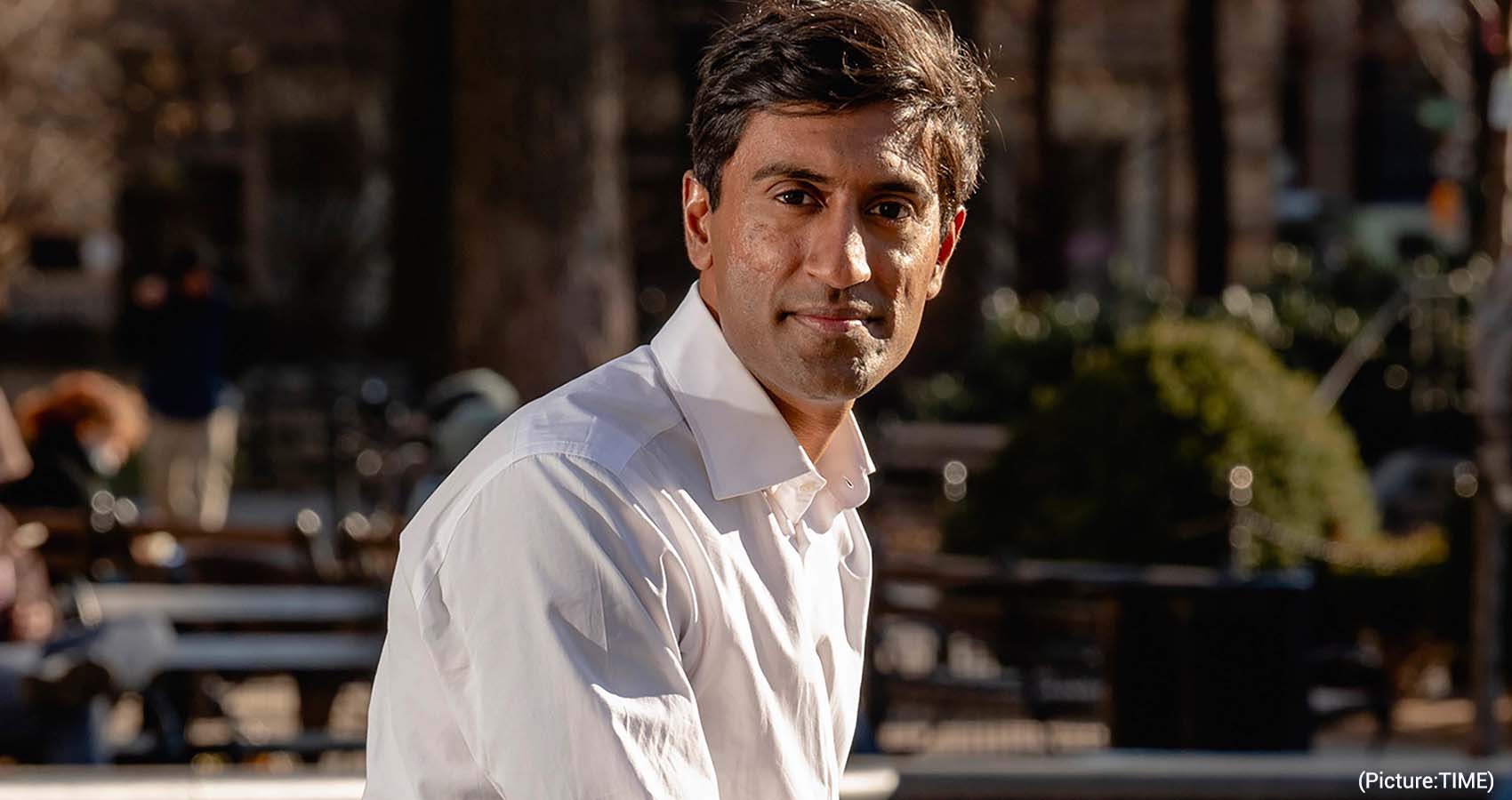Liquor industry leader Ann Mukherjee makes bold moves to fulfill her passionate belief in return on responsibility. “It’s not enough to be responsible. You have to get a return on it,” says Mukherjee, the 57-year-old chairwoman and CEO of Pernod Ricard North America, the largest operation at the world’s second biggest producer of wine and spirits. It makes Absolut vodka, Malibu rum, Jameson Irish whiskey, and Beefeater gin, among others. “I experienced personal traumas caused by others’ irresponsible drinking. That’s why my responsibility is to lend my voice and humanize issues,” she says.
Mukherjee was born in India, and raised in the U.S. An intoxicated adolescent boy sexually assaulted her at age four. A drunk driver killed her mother when she was a teenager. She held marketing management roles at several consumer product makers before surprising friends and family by joining the booze business.
Now she’s the first woman, person of color, and industry outsider to lead Pernod Ricard’s North American unit, which excludes Mexico. Shortly after her December 2019 arrival at the company, Mukherjee launched an Absolut Vodka campaign targeting sexual consent, and painted “sex responsibly” on her fingernails.
Next up, she will expand a Dallas pilot project that combats binge drinking and impaired driving. The “Safe Night” program, which Pernod cosponsors, hopes to soon add another major U.S. city. “We want to take this nationwide,” she says. A self-proclaimed “acceleration queen,” Mukherjee says she also aims to speed Pernod Ricard’s U.S. growth “to try to make us number one in the world.”
TIME recently spoke with Mukherjee about her employer’s other efforts to prevent drunk driving, the appetizing outlook for ready-to-drink cocktails, “war gaming” product launches, and why she yearns to own a restaurant.
This interview has been condensed and edited for clarity.
How does return on responsibility improve returns for your investors? Do you avoid taking a public stance on certain controversial issues because your position might hurt Pernod Ricard?
Consumers have a higher standard around brands they trust. They expect those brands to be walking the talk. Return on responsibility is what consumers expect of us. It actually drives return on investment. Making it part of your DNA not only future-proofs your business, it also creates the loyalty you need.
We only go after those issues that drive value, our company values, and our purpose of conviviality. Conviviality is about unlocking this magic of human connections. When somebody gets promoted, you’re celebrating over two flutes of champagne. We stay away if [an issue] isn’t about unlocking that magic.
Employees have asked me to speak against gun violence, a very important issue, but not our mission. So I am not going to [do so].
Why should executives speak out about issues related to their business? After all, most Americans want companies to stay out of social and political issues, some surveys find.
Every company needs to define their value creation model. You’re giving people something to buy into [because] you are a brand standing for timeless values. If sustainability issues are not about how you create value, don’t talk about them. Taking on topics du jour is another form of greenwashing. [Saying] you care about sustainability “because we’re supposed to’’ is not good enough. At Pernod Ricard, we talk about sustainability because nothing we make happens without agriculture. We won’t have a business if we don’t care about our farmers [or] don’t understand water conservation.
The Dallas pilot project epitomizes your return on responsibility commitment by training restaurants and bars to assist customers who drink too much. Given your horrific experiences involving alcohol abusers, why didn’t you initially launch a nationwide campaign against drunk driving?
The project’s approach had never been done before so we wanted to pilot it to make sure we got the right model [before] we start rounding it out to every city. Nationally, we do other things around responsible drinking. You attack it through helping the hospitality industry, education, and legislation. We worked very hard with Responsibility.org on a [relevant] piece of legislation in President Biden’s infrastructure package.
The package the president signed into law contains a provision that any car manufactured in the United States must soon be capable of preventing a drunk driver from operating the vehicle. I got pretty emotional the day that law got signed. I posted a picture of my mom to my family and told them how the provision will reduce drunk driving. It was a way to give her death some meaning.
The ready-to-drink cocktail market is flourishing. How much U.S. revenue might Pernod Ricard get from such cocktails five years from now?
I can’t give any forward-looking numbers, but it is a part of our growth equation. The U.S. market for ready-to-drink cocktails is expected to grow at a rapid pace. People looking for convenience [also] want brands and cocktails they know and trust. So Malibu making a ready-to-drink piña colada makes sense. Absolut making an espresso martini ready to drink makes sense.
It’s important enough for us that we are now investing capital behind it. We’ve installed [our first] ready-to-drink canning line in our Fort Smith, Ark., facility. That $22 million investment is expandable so as that business gets bigger, we have the ability to grow with it.
While chief marketing officer of Frito-Lay North America, you helped introduce biodegradable bags for its Sun Chips. But due to their loud crackling sounds, the bags got withdrawn. What key leadership lesson did that noisy flop teach you?
At that time, the company wanted to make bold statements. While [the bag] did not work, employees said, “Wow, we were willing to take a risk for what we believed in.” But [being] enamored by the technology clouded our better business judgment. Passion, if not done objectively, sometimes is not the smartest thing to do. I learned to have a war game plan ready to go if something goes wrong.
How do you use war gaming to lead Pernod Ricard North America effectively?
We war game to be ready. There could be possible problems involving innovation launches, new marketing campaigns or new technology. And even if it’s a success, what were the lessons learned?
A great example is Jameson Orange, the first real flavored whiskey launched under the Jameson franchise. It was probably the biggest [U.S.] innovation launch the industry saw last year. We war gamed everything. What did this teach us? You got to make sure your innovation is on the shelf before you do all that [promotional] display stuff. It was 100% against industry norms. We’re very excited about the results. We now launch innovation based on learnings around how consumers shop.
You often use nail polish to broadcast your views about hot topics. You painted Black Lives Matter or BLM on your fingernails after George Floyd’s murder in 2020. And you put a Ukrainian flag on your nails following Russia’s invasion last year. What message are you sending to your coworkers?
That it’s OK to be vulnerable. And it’s a way for me to use something illustratively to say, “I care. You matter.’’
You try to unleash gifts that colleagues don’t know they have, so they feel they can do the impossible. What impossible goal have you achieved?
Sitting in the chair I’m in today. I’ve been told, “You should be a homeless drug addict,’’ [because of] my story. I feel very privileged that people believe I can create positive change. Most people can achieve anything they want if they can get out of their own way. I try to get people out of their own way and give them inspiration and hope.
Not long ago, you said you were still trying to decide what you want to be when you grow up. Are you interested in becoming CEO of a publicly held company someday?
Why wouldn’t I be? That’s absolutely in the mix. I get [recruiter] calls. And what a training ground I’m in now! But I’m very happy where I am. I came [to Pernod Ricard] because I wanted to accomplish something from a business and responsibility perspective. Working for a company you believe in doesn’t come around every day.
I would [also] love to open my own restaurant and be the Stanley Tucci of India. Cooking is how I get rid of stress. I read cookbooks like novels. I love fusion cooking, bringing different cuisines together, and understanding culture through food. We [recently took] a three-week food extravaganza tour in Vietnam. I’ve got lots of dreams. Who knows what I’ll end up doing? (TIME.COM)



